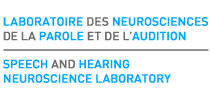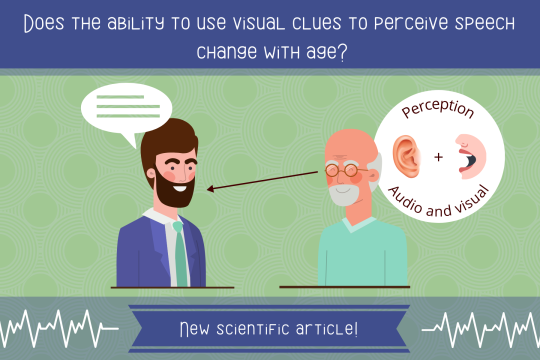Our goal is to understand how the neurobiological systems that underlie communication change with age, and to identify the impacts that these changes can have on communication, both in terms of language expression and language reception. Our work has highlighted significant articulatory and perceptual difficulties in the elderly. We have demonstrated that these difficulties are associated with changes in the structure of the brain, both in terms of gray and white matter, as well as with changes in the functioning of the brain in several networks, including the dorsal speech stream, the motor system and the salience network.
To tackle this important question, we use multimodal (functional, structural, diffusion) magnetic resonance imaging (MRI), electroencephalography (EEG) and transcranial magnetic stimulation (TMS) to study the effects of aging on the brain, which we combine to behavioural, bioacoustics and cognitive approaches to understand the impact of brain aging on communication, social participation and quality of life.

Selected relevant publications on this topic
- Tremblay, P., Pinto, S., Basirat, A., Sato, M. (2021) Visual prediction cues can facilitate behavioural and neural speech processing in young and older adults. Neuropsychologia, 159: 1-17.
- Tremblay, P., Brisson, V., Deschamps, I. (2020) Brain aging and speech perception: effects of background noise and talker variability. 227.
- Tremblay, P. et al. (2018) Aging of speech production, from articulatory accuracy to motor timing. Psychology and Aging, 33(7):1022-1034. doi: 10.1037/pag0000306.
- Tremblay, P., Poulin, J., Martel-Sauvageau, V., Denis, C. (2019) Age-related deficits in speech production: from phonological planning to motor implementation. Experimental gerontologist.126. 110695
- Tremblay, P., Perron, M., Deschamps, I., Kennedy-Higgins, D. Houde, J.-C., Dick, A.S., Descoteaux, M. (2018) The role of the arcuate and middle longitudinal fasciculi in speech perception in noise in adulthood. Human Brain Mapping. doi: 10.1002/hbm.24367.
- Lortie, C.L., Thibeault, M., Guitton, M.J., Tremblay, P. (2018) Age differences in voice evaluation: from auditory-perceptual evaluation to social interactions. JSLHR, 61, 227-24.
- Tremblay P, Sato M, Deschamps I. (2017). Age-related differences in speech production: an fMRI study of healthy aging. Human Brain Mapping 38:2751–2771.




